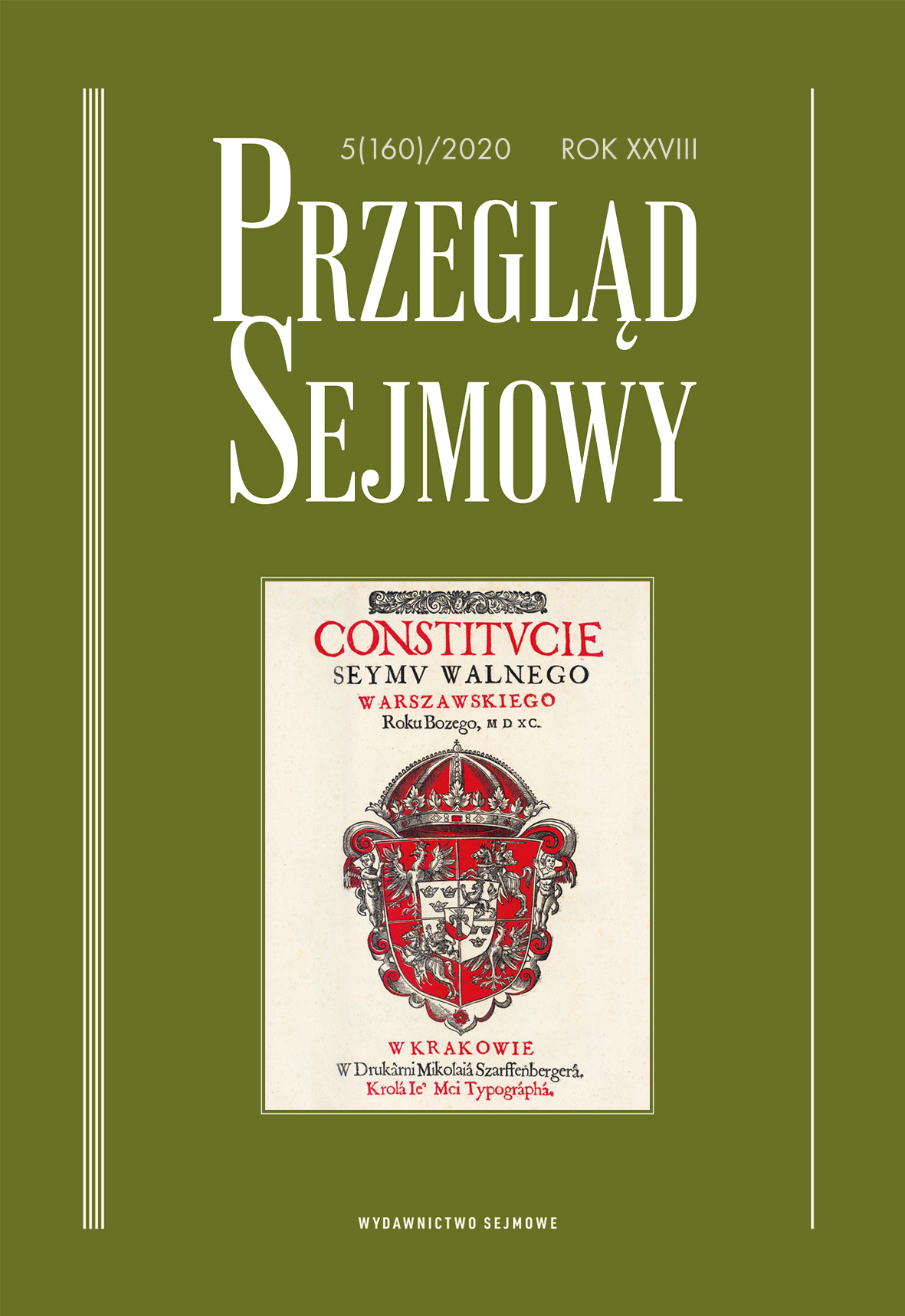Rola polskiego parlamentu w systemie organów wdrażających wyroki Europejskiego Trybunału Praw Człowieka
The role of the Polish Parliament in the system of bodies implementing judgments of the European Court of Human Rights
Author(s): Katarzyna Grzelak-Bach, Karol KarskiSubject(s): Politics / Political Sciences, Governance, Geopolitics
Published by: Kancelaria Sejmu
Keywords: parliament; human rights; legislation; national law; Constitution of the Republic of Poland; international legal obligations; implementation;European Court of Human Rights;
Summary/Abstract: The study presents selected issues related to the role of the national parliament in the implementation and execution of judgments of the European Court of Human Rights (ECHR). It presents the specificity of the national law-making process as a system of ad hoc legislation, which to a small extent is a response to international obligations in the field of human rights. The study also attempts to examine the impact of the case law of the ECHR on the national legal system by analyzing the subsequent stages of the legislative process. It emphasizes the role of the Committee of Ministers of the Council of Europe, whose task is to ensure that states do not overlook — by their actions or omissions — the effects of judgments. The study attempts to assess the degree of sensitisation and the increase of awareness regarding the significance of the standards of the Convention for the Protection of Human Rights and Fundamental Freedoms (Convention) in the national institutions and executive and legislative authorities that actively cooperate with each other. The implementation of the guidelines of correct legislation in the context of human rights is an activity of entities involved in the law-making process which, taking into account the standards of national and international law, shape in a specific manner the situation of individuals as well as of all entities. Parliaments can hold the executive authorities accountable for the execution of obligations by means of various instruments, and thus many legal issues that were the subject of the judgments of the ECHR had significant impact on the legislative process and the undertaking of respective legislative actions towards bringing Polish legislation closer to the standards of the Convention. The Sejm (the Polish Lower House) and the Senate bear enormous responsibility for the quality of the adopted law; at the parliamentary stage the role of the Council of Ministers of the Republic of Poland becomes less leading, but not excluded. This is what determines the unique role of the dialogue between the executive and legislative authorities, which should finalize the vision of the legal regulations closer to human rights in a constructive manner.
Journal: Przegląd Sejmowy
- Issue Year: 2020
- Issue No: 5
- Page Range: 9-34
- Page Count: 26
- Language: English, Polish

